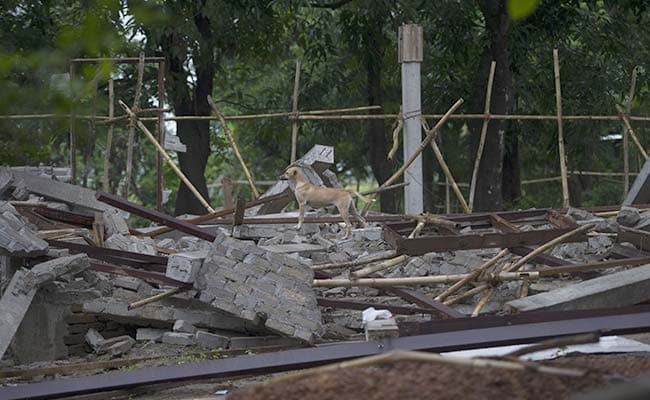Myanmar’s forces have killed dozens of Rohinya Muslims in its latest wave of crackdown on the country’s most persecuted minority in western Rakhine State.
The military said in a statement on Monday that about 30 members of what it called a Rohingya Muslim “militant group” during clashes that erupted in the border town of Maungdaw over the weekend.
Authorities have blocked access to the area, making it difficult to independently verify government reports or accusations of army abuse.
 Northern Rakhine has been under a military lockdown since an alleged attack on the country’s border guards on October 9 left nine police officers dead, with the government accusing Rohingyas of being behind the assault.
Northern Rakhine has been under a military lockdown since an alleged attack on the country’s border guards on October 9 left nine police officers dead, with the government accusing Rohingyas of being behind the assault.
Soldiers have killed scores and arrested many more in their hunt for the alleged attackers.
According to a Reuters estimate, the latest fatalities brought the total number of Rohnigya Muslims killed since October 9 to 60.
Rakhine, home to around one million Rohingya Muslims, has been the scene of communal violence at the hands of Buddhist extremists since 2012.
Hundreds of people have been killed, while tens of thousands have been forced to flee their homes and live in squalid camps in dire situations in Myanmar and other countries in Thailand, Malaysia and Indonesia.
According to the UN, Rohingyas are one of the most persecuted minorities in the world.
In this file photo, Rohingya children gather at a camp for Muslim refugees, north of Sittwe, western Rakhine State, Myanmar. (By AP)
The government denies full citizenship to 1.1 million-strong Rohingya population, branding them illegal immigrants from Bangladesh, even as many trace their lineage in Myanmar back generations.
There have been numerous accounts by eyewitnesses of summary executions, rapes and arson attacks against houses by security forces.
Human Rights Watch said Sunday that high-definition satellite images showed a widespread fire-related destruction of Rohingya villages, adding the destruction was worse than initially feared.
The government and the army have rejected the accusations, saying they have simply been conducting a “clearance operation” in the region.
The military said in a statement on Monday that about 30 members of what it called a Rohingya Muslim “militant group” during clashes that erupted in the border town of Maungdaw over the weekend.
Authorities have blocked access to the area, making it difficult to independently verify government reports or accusations of army abuse.
 Northern Rakhine has been under a military lockdown since an alleged attack on the country’s border guards on October 9 left nine police officers dead, with the government accusing Rohingyas of being behind the assault.
Northern Rakhine has been under a military lockdown since an alleged attack on the country’s border guards on October 9 left nine police officers dead, with the government accusing Rohingyas of being behind the assault.Soldiers have killed scores and arrested many more in their hunt for the alleged attackers.
According to a Reuters estimate, the latest fatalities brought the total number of Rohnigya Muslims killed since October 9 to 60.
Rakhine, home to around one million Rohingya Muslims, has been the scene of communal violence at the hands of Buddhist extremists since 2012.
Hundreds of people have been killed, while tens of thousands have been forced to flee their homes and live in squalid camps in dire situations in Myanmar and other countries in Thailand, Malaysia and Indonesia.
According to the UN, Rohingyas are one of the most persecuted minorities in the world.
In this file photo, Rohingya children gather at a camp for Muslim refugees, north of Sittwe, western Rakhine State, Myanmar. (By AP)
The government denies full citizenship to 1.1 million-strong Rohingya population, branding them illegal immigrants from Bangladesh, even as many trace their lineage in Myanmar back generations.
There have been numerous accounts by eyewitnesses of summary executions, rapes and arson attacks against houses by security forces.
Human Rights Watch said Sunday that high-definition satellite images showed a widespread fire-related destruction of Rohingya villages, adding the destruction was worse than initially feared.
The government and the army have rejected the accusations, saying they have simply been conducting a “clearance operation” in the region.



